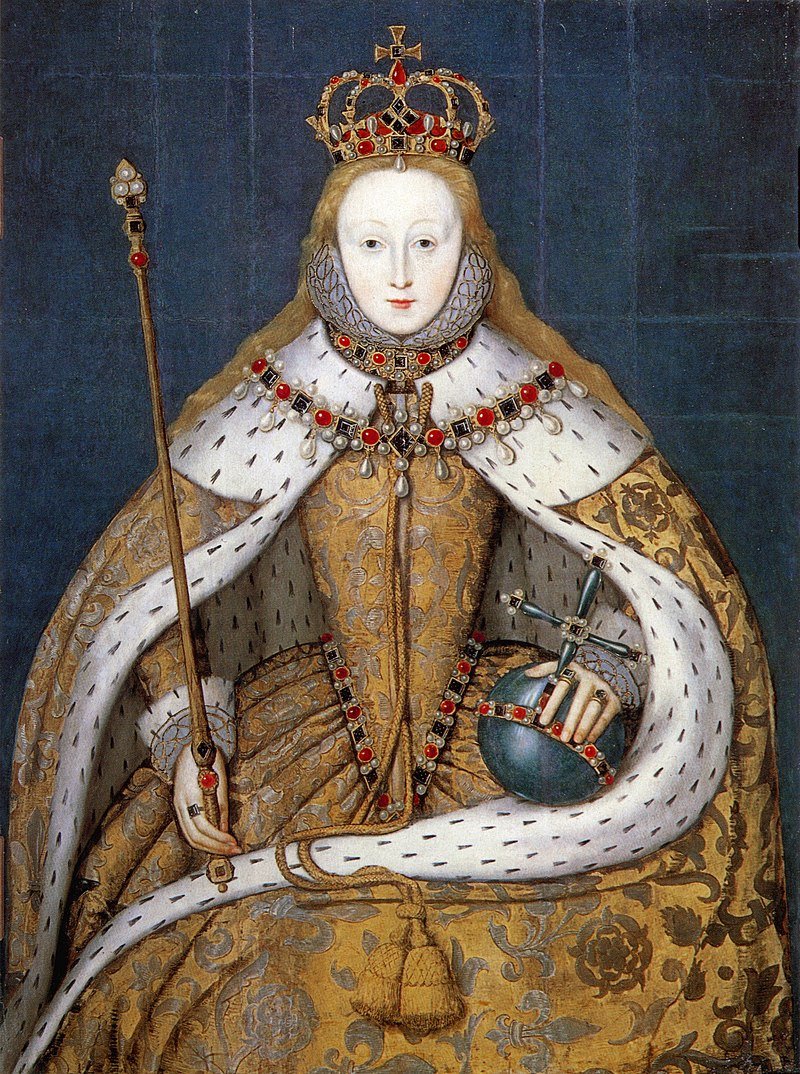The coronation of Elizabeth I on January 15, 1559, marked the beginning of a remarkable era in English history. Elizabeth’s reign, known as the Elizabethan era, is often regarded as one of the golden ages of England. This article explores the historical significance of her coronation and the lasting impact of her rule.
A Time of Stability
Elizabeth I ascended to the throne after a period of political and religious turmoil in England. Her half-sister, Mary I, had been a staunch Catholic and had persecuted Protestants during her reign. Elizabeth, on the other hand, was a Protestant and sought to restore stability to the kingdom.
Her coronation symbolized a new era of religious tolerance and unity. Elizabeth’s commitment to the Protestant Reformation brought about significant changes in the religious landscape of England. The Act of Supremacy, passed in 1559, established Elizabeth as the Supreme Governor of the Church of England, separating the country from the authority of the Pope in Rome.
The Arts and Culture Flourish
Under Elizabeth’s rule, the arts and culture thrived in England. The Elizabethan era witnessed a blossoming of literature, theater, music, and visual arts. Some of the greatest playwrights in history, such as William Shakespeare and Christopher Marlowe, emerged during this period.
Elizabeth herself was a patron of the arts and supported the growth of theater and literature. The construction of the famous Globe Theatre in London, where many of Shakespeare’s plays were performed, is a testament to the flourishing artistic scene of the time.
Exploration and Expansion
Elizabeth’s reign also saw significant advancements in exploration and expansion. During this period, England became a major player in the Age of Discovery, with explorers like Sir Francis Drake and Sir Walter Raleigh undertaking voyages to new lands.
Drake’s circumnavigation of the globe and his defeat of the Spanish Armada in 1588 solidified England’s status as a formidable naval power. The wealth and resources brought back from these expeditions contributed to the growth of the English economy and the expansion of the British Empire.
Elizabeth’s Legacy
Elizabeth I’s reign left a lasting legacy on England and the world. Her strong, independent leadership and her ability to navigate the complexities of politics and religion made her a revered figure in history.
She was known as the “Virgin Queen” due to her decision to remain unmarried and childless throughout her reign. This allowed her to focus on her duties as queen and maintain her independence from foreign powers.
Elizabeth’s reign also saw the rise of England as a major European power. Her policies and strategies strengthened the country’s economy, military, and cultural influence. The defeat of the Spanish Armada, in particular, marked a turning point in European history and solidified England’s position as a dominant naval force.
Despite facing numerous challenges and threats, Elizabeth I’s reign was characterized by stability and progress. Her coronation in 1559 marked the beginning of an era that would shape the course of English history for years to come.
Conclusion
The coronation of Elizabeth I in 1559 was a pivotal moment in English history. Her reign, known as the Elizabethan era, brought stability, cultural flourishing, and exploration to England. Elizabeth’s strong leadership and her commitment to Protestantism established England as a major European power. Her legacy as the “Virgin Queen” and her achievements during her reign continue to be celebrated and studied to this day.
For more information on the coronation of Elizabeth I and the Elizabethan era, you can visit the following external references:
Explore these resources to delve deeper into the fascinating history of Elizabeth I and her coronation.

